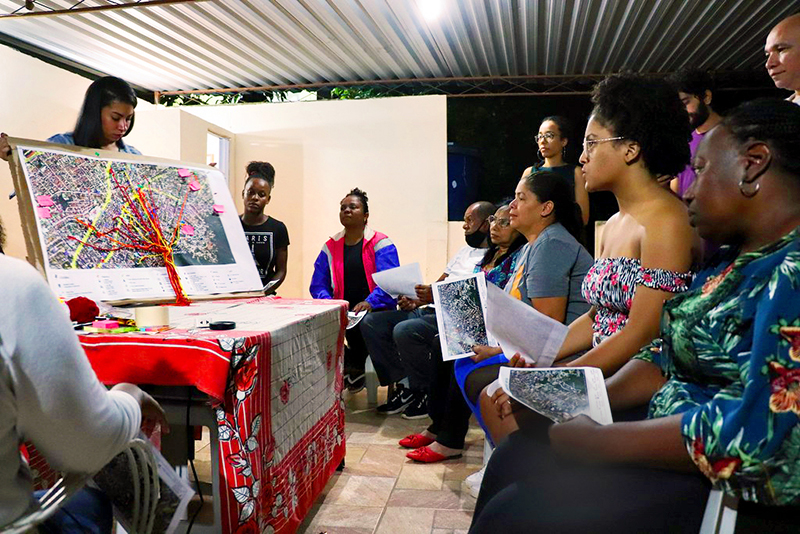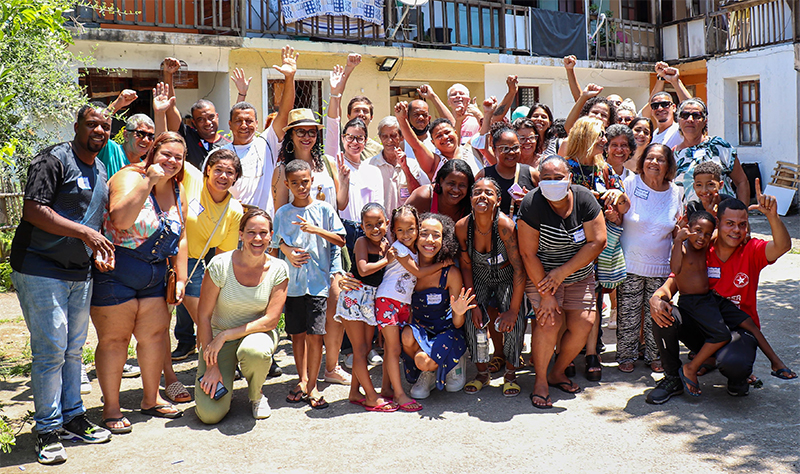In Rio de Janeiro, approximately 24% of the population lives in favelas, which are hosting more than 1.4 million people. It is the city with the largest number of residents of the favelas of Brazil.
Context,
The working classes, who were often forced to occupy public lands, private spaces without direct exercise of ownership or, simply, land, non-registered, form of informal settlements. The relationship of the State with these spaces has always been ambiguous : moments of tolerance and authorization, other of repression and attempts of forced displacement.
Many of these communities are located in areas valued of the city – areas that are of interest and which are subject to at a constant pressure of the real estate market, which further spurs the socio-spatial segregation that characterizes the “cidade maravilhosa”.
To protect themselves, the model Termo Territorial Coletivo (TTC) is proposed as a means of recovering these territories, ensuring their permanence in the developed areas of the city from the security of tenure is effective resident·es against real estate speculation and the increase in the cost of living, and at the same time providing affordable housing permanently.
The adoption of a specific model of Community Land Trusts in Brazil – TTC would act directly on three of the main problems faced by the vulnerable urban populations in all of Brazil, particularly in Rio de Janeiro, to find out : tenure security, the need to improve the territories and infrastructure, and community engagement that is often casual and ineffective.
The work of urbaMonde
In this project, urbaMonde provides technical assistance to CatComm – our local partner in the formulation and development of different local policies, as well as in reflection and evaluation of the activities and results of the project throughout its implementation.
In 2022, the project has made significant advancements in the mobilization of communities in the formulation and implementation of a legislative framework regulating the CLTs, in Brazil and in the dissemination of the model to the national level.
Currently 4 communities-drivers are committed to the implementation of CLT in their territories, 2 having joined the project in 2022. At the legislative level, the first law on the model CLT in Brazil has been approved : the municipality of São João de Meriti, part of the metropolitan region of Rio de Janeiro, has included the template in its master Plan.
In addition, the project has been an important development in the dissemination strategy. Following the national seminar in 2022, a number of organizations in other brazilian States have shown a great interest in the propagation of the model at the national level, which has resulted in the formation of the Group of Multipliers of the CLT.
This three-year project is supported by the FGC.






